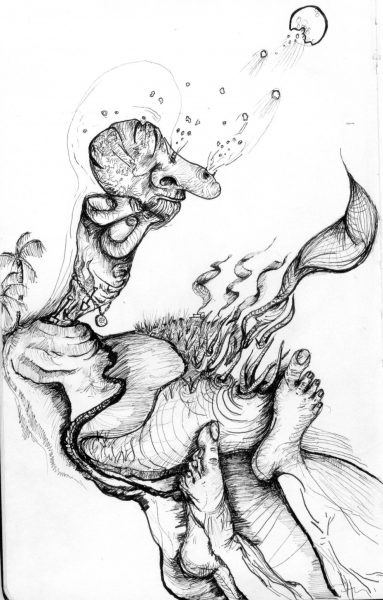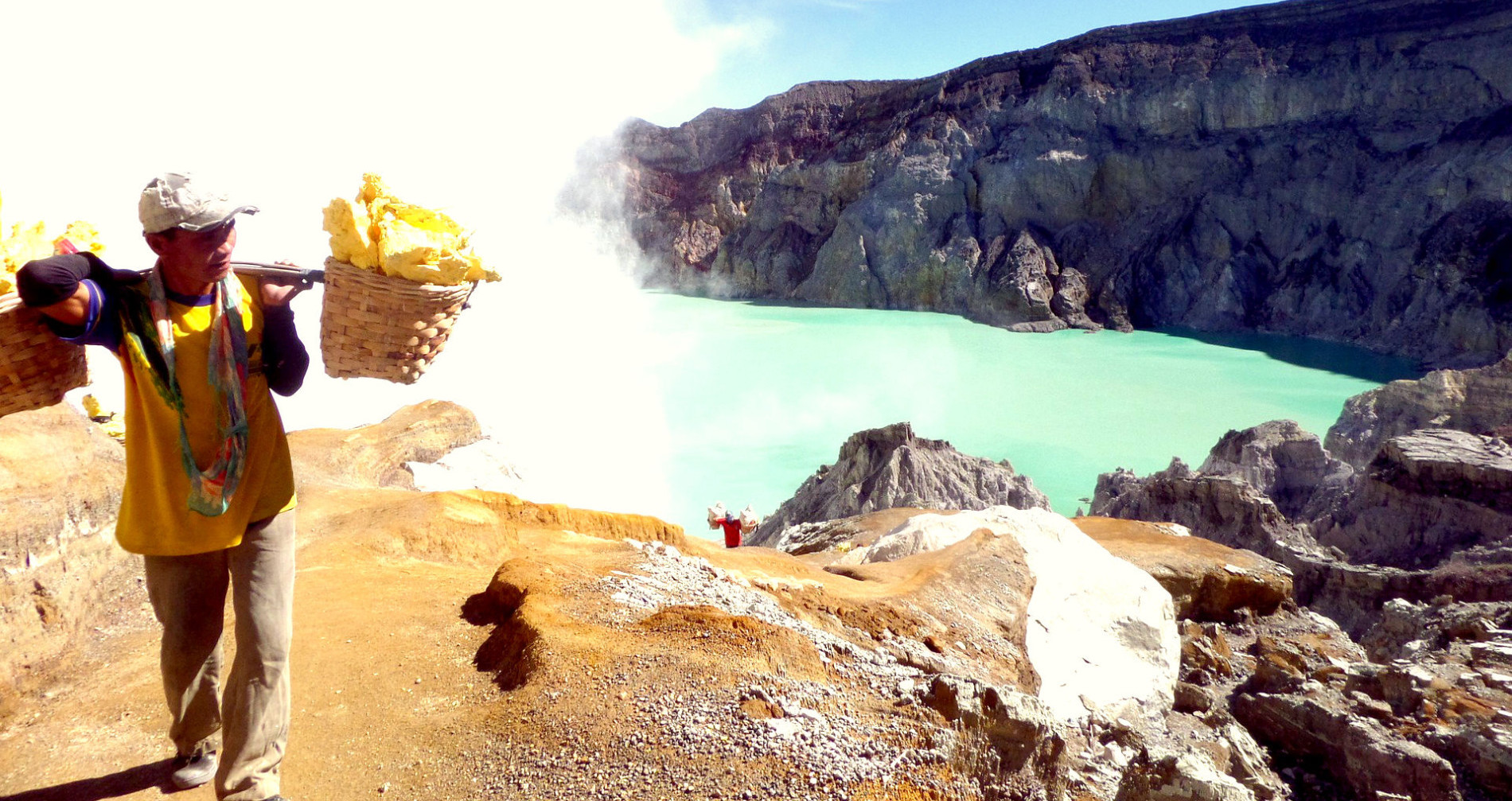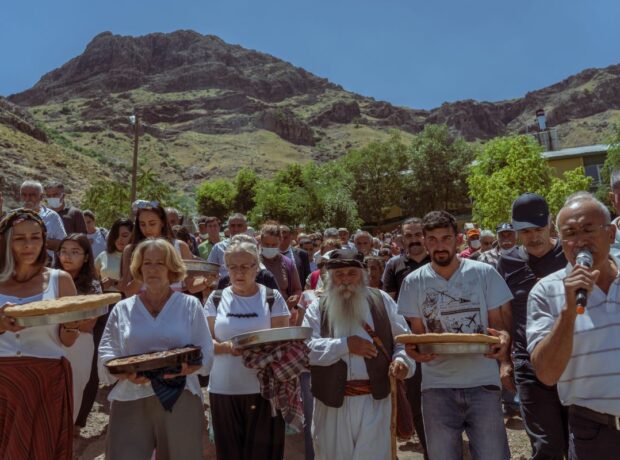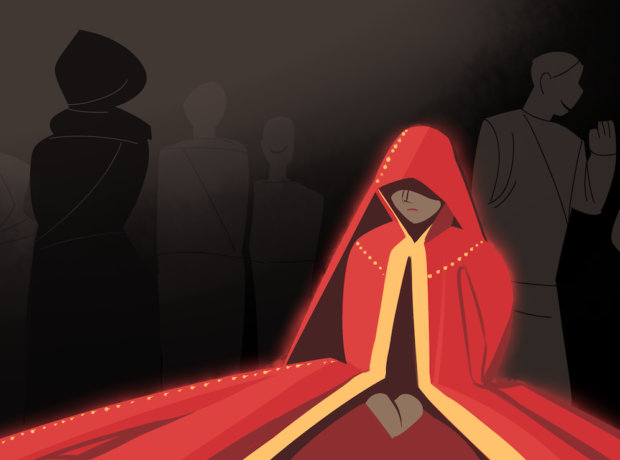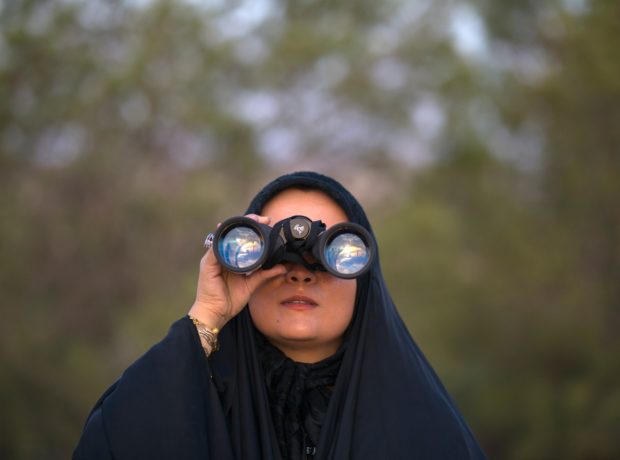I heard Fahrul Raji’s voice on the radio in 2013. Fahrul is a smelter in Kereng Pangi, a town in the Central Kalimantan province of Indonesia. Each day, in the shop passed down to him by his father, he works with a blow-torch, burning small pieces of amalgam that are brought to him by local miners. These pieces of amalgam are the products of an illegal form of gold mining, one that uses mercury to extract small quantities of gold from the slurry of tonnes of earth and rock.
The impact of this form of gold mining is devastating. For smelters such as Fahrul, whose job it is to burn and boil away the traces of mercury, the years of inhaling the toxic fumes are slowly taking their toll. For Kereng Pangi and the surrounding area, the gold mining industry has proven similarly destructive. Deforestation in the goldfields has blasted the landscape, leaving it a pale spot on the map, surrounded by green.
When I heard Fahrul’s voice on the radio, you could hear in the background the laughter of the children who were already working with mercury. They were laughing because of the attention paid to them, because they had to produce urine samples, were asked to jump and clap their hands in the air.
This story was broadcast on BBC radio in 2013. To find out more about the story and further information on the impact of the gold mining industry and mercury poisoning in Kereng Pangi can be found here.

Victoria Watson is a freelance illustrator based in London. Since graduating from the University of Warwick in 2014, she has been developing her skills as a fine artist and performance artist, combining her illustration roles with work as an actress, a part-time florist and as an associate artist with ‘Breach’ theatre company. Victoria is also a co-founder of ‘Bacchus’, an arts collective dedicated to nurturing creativity and making spaces that allow for fearless expression.
Banner photo from the public domain
The Smelter of Kereng Pangi
The ballpoint bounces on the white
in bare, steamed smooth
square nailed fingers.
The pauses too long
too far apart
Words run together
from shaking lips
on a sour mouth
Skull grown tight,
throat broken.
The boys that scurry
flap feet on the brown,
friends laugh.
They don’t jump right
too far apart
Beneath the raking shadows
twitching as they pass,
the shine is buried under the sand
the sand buried in water,
the water lifted.
Burnt free
from the stones that remain,
a bright, pitted
wanted thing,
rich in its history of poison.
There in the brown, the shine
and the white,
while Rolex arms click on
stilling the hammer,
stilling the pen.
